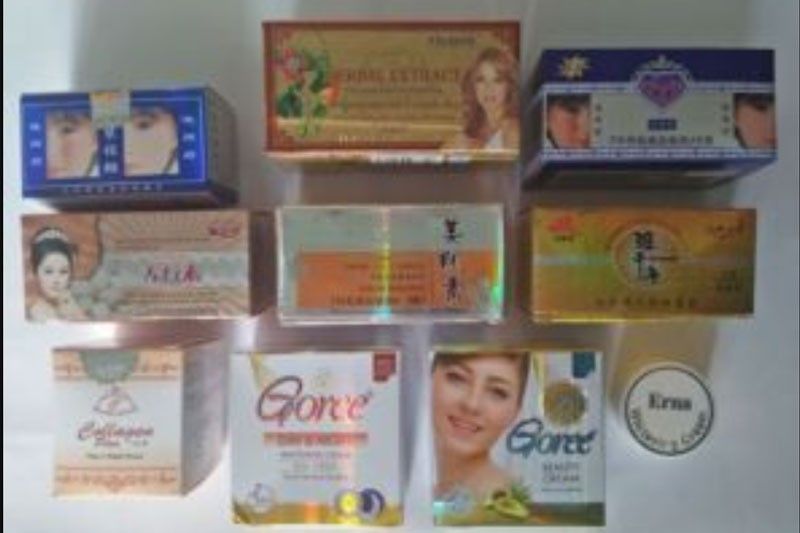Toxics watchdog warns against liquid mercury products on e-commerce

MANILA, Philippines — Mercury-based products being sold by third-party dealers in e-commerce marketplaces, apart from being illegal according to the country's mercury policies and regulations, also come with a litany of dangerous side-effects for consumers, an environmental safety watchdog said Sunday.
In a statement Sunday morning, nonprofit EcoWaste Coalition said that it found mercury thermometers, liquid mercury in flask containers, and skin whitening products banned by health authorities for containing mercury compounds, which it pointed out are prohibited in cosmetic formulations by experts.
The group added that it had already notified lead regulatory agencies, particularly the Environmental Management Bureau and the Food and Drug Administration, about the presence of mercury and banned mercury-added products on a number of e-commerce platforms.
“We remind consumers to be cautious and alert to the dangers of buying and using mercury and mercury-added products that are illegally being offered for sale by online dealers,” said Thony Dizon, chemical safety campaigner at the coalition.
“Mercury is highly toxic, so we advise consumers to seek out mercury-free products," he said, stressing that the enforcement of mercury-related policies and regulations, including the environmentally sound management of mercury wastes, should be actively supported.
INTERAKSYON: Ecowaste says retailers continue to sell mercury-laden beauty products in Manila
Department of Environment and Natural Resources Administrative Order 2019-20, or the Revised Chemical Control Order for Mercury and Mercury Compounds, “prohibits the use of mercury and mercury compounds and mercury-added products for artisanal and small-scale gold mining and any other related mining activities."
The AO adds that any entity importing, manufacturing, distributing, and storing products with mercury must be registered with the department's Environmental Management Bureau and have a required permit secured.
The health department also has a list on its website of "cosmetic whitening products found to contain excessive levels of mercury and without the benefit of notification with FDA."
Symptoms of mercury poisoning include irritability, shyness, tremors, changes in vision or hearing, memory problems, depression and numbness and tingling in hands, feet or around the mouth.
According to the World Health Organization, mercury in skin lightening products such as soaps and creams can cause skin discoloration, rashes and scarring and also reduce skin’s resistance to bacterial and fungal infections, and in some extreme cases, even cause damage to the kidneys.
In its statement, EcoWaste said that the FDA in a response to the coalition has said it would “facilitate the development of the requested policy banning or prohibiting the manufacture, importation, distribution and sale of thermometers and sphygmomanometers with mercury.”
“As civil society representative to the interagency committee that developed the National Action Plan for the Phase-Out of Mercury Added Products and the Management of the Associated Mercury-Containing Wastes, we are concerned that the unchecked online sale of mercury-containing medical devices goes against the government’s policy of preventing and controlling mercury emissions and releases pursuant to the Minamata Convention,” the EcoWaste Coalition also wrote.
The coronavirus pandemic and lockdowns have forced consumers, which in the Philippines drive the economy, indoors—which consequently drove up sales on e-commerce platforms like Lazada, where online shoppers stuck at home spent nearly 30 minutes adding to cart during Lazada Philippines’ 9.9 sale.
READ: Shoppers spend half an hour 'adding to cart' at 9.9 sale
As of the Department of Health's latest case bulletin issued Saturday afternoon, the national caseload stands at 336,926, with 54,594 of which still classified as active cases.
Worldwide, over 37.4 million coronavirus cases have been recorded, leading to over 1.07 million deaths, according to latest data from the World Health Organization.
- Latest
- Trending

































